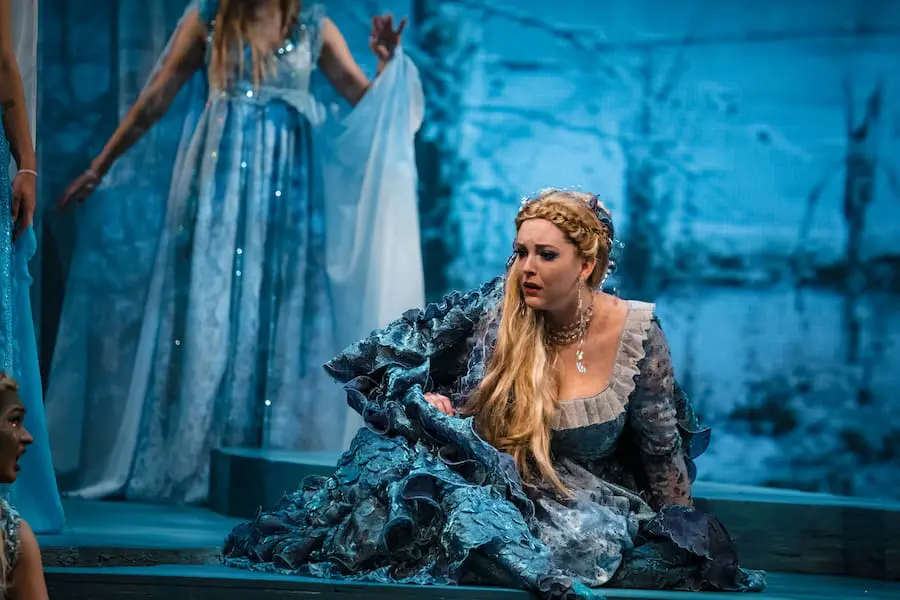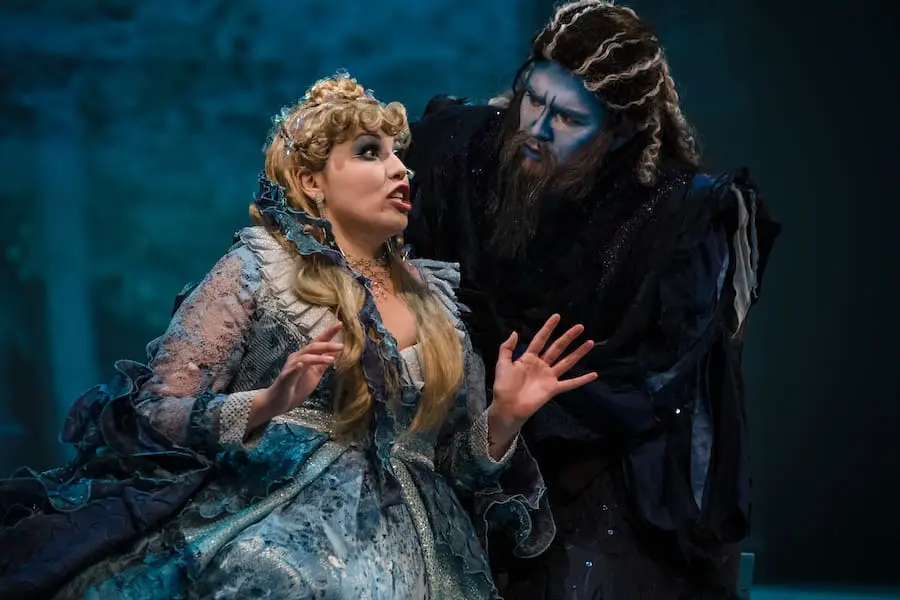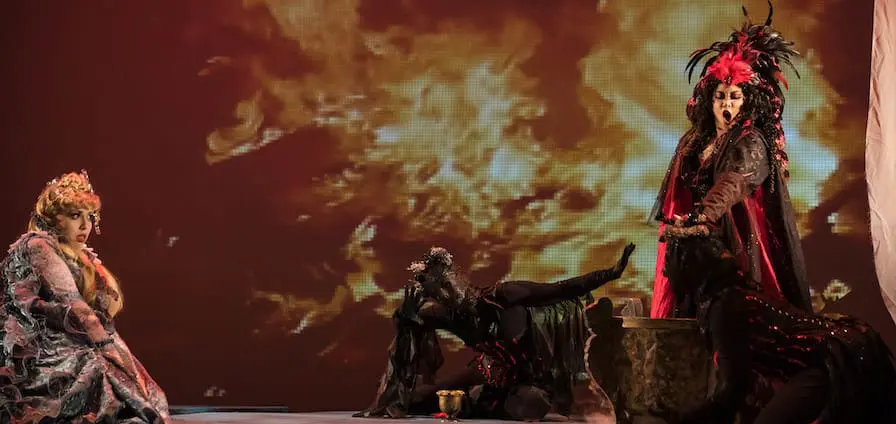Opening on June 23 for a four-night run, this was the third production of Rusalka in UBC Opera’s almost six-decade history.
The first—a lot more significant in retrospect than it ever seemed at the time—was just over 45 years ago in March, 1977, when it was staged by the then-named UBC Opera Workshop under the direction of French Tickner. Not only was that production the Canadian stage premiere of Rusalka, but it included none other than tenor Ben Heppner (then a third-year undergraduate in the UBC Department of Music) in the role of the Prince. Little did anyone guess in 1977 just how far Heppner’s career would take him!
UBC Opera did not restage Dvořák’s sadly beautiful fable of the ill-fated water nymph Rusalka until 2012 and now, ten years later, it was most welcome on the Old Auditorium stage again. With good reason: even if not as technically polished as seasoned professionals, a youthful cast bursting at the seams with talent, performance moxie and sheer immersion in their craft meant there was plenty to savor, both visually and vocally.

Catherine Thornsley as Rusalka Ⓒ SARAH RACE
On opening night, Catherine Thornsley was a glorious-voiced Rusalka, her luxuriant soprano in “Song to the Moon” intensely lyrical with that kind of ardency that only first love can generate. She also has an impressive enough stage presence to stand her own during Act Two when the plot requires her character to be mute. I can certainly see Rusalka developing into a signature role for Thornsley.
She was matched admirably by Ian McCloy as the Prince: there’s a wide emotional range for both his role and Thornsley’s yet both handled their vocal demands to an impressively high degree. The pathos of their ultimate reconciliation in Act Three was particularly moving as their characters gently died in each other’s arms.

Catherine Thornsley and Philip Wing, Rusalka and Vodnik Ⓒ SARAH RACE
As the Water Gnome Vodnik (Rusalka’s father), Philip Wing was stern yet ultimately kind, demonstrating that his character’s actions, while seemingly strict at times, were borne out of love and caring for his daughter. Alyssa Nicole Samson, clad in striking red and black, was a relentlessly unforgiving Jezibaba and certainly “got” the character’s mix of malevolence and grotesque comedy.
Leila Kirves was imperious as the colorful and charismatic Foreign Princess, the femme fatale who attempts to steal the Prince’s heart from the naive Rusalka. Whenever Kirves and Thornsley were onstage at the same time, the tension between the two was palpable—a telling scenario of intense interpersonal psychodrama within the overall arch of the opera’s story.
The trio of Wood Sprites—Brittany St. Clair Gamble, Emma Jang and Holly Duerichen—were visually and vocally impressive and memorable. Even if the roles are not collectively huge, they are significant at linking the elements of the opera.
Nancy Hermiston’s assured direction ensured staged elements and positioning were smooth, coherent and deftly executed. Stage movement was always purposeful, direct and rooted entirely in the current emotional reality of a scene. The forward thrust of the drama always maintained a lyrical, coherent flow that heightened audience engagement.
Ably conducted by Norbert Baxa, a pared-down Vancouver Opera Orchestra made a liltingly idiomatic traversal of Dvorak’s melody-infused score. Basa’s Czech heritage has him acutely attuned to the nuance of Dvorak’s quintessentially Czech music and the responsive VOO musicians deftly handled music that must have been unfamiliar to them (Vancouver Opera has never staged Rusalka) with extraordinary naturalness and ease. Both Baxa and the VOO appear regularly in the UBC Opera pit and, if anything, seem to perform better each time I hear them.
In the non-singing realm of this staging, I was particularly impressed with the elegant, flowing and colorful costumes of Parvin Mirhady and the flexible, imaginative set design of Alessia Carpoca. Projected backdrops, from lake and leafy woodland to imposing castle courtyard, had a naturalness and ease of flow as they shifted, sometimes magically, to match the scene unfolding before them. Synchronicity and timing were pretty well immaculate throughout, visually transporting the audience to Rusalka’s watery world.
Although not all the singers involved are ready for the professional stage just yet, a goodly number are well on their way. It is good to see UBC Opera infusing the world opera scene with such an abundance of largely Canadian talent, demonstrating yet again the universality of opera’s appeal.














